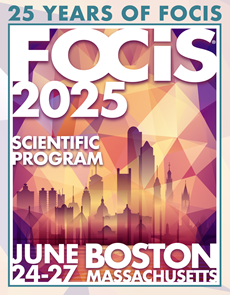Autoimmune Diseases
Session: Immuno-oncology
Targeting T Cell-Myeloid Interactions in Immune Checkpoint Inhibitor-Induced Myocarditis for Therapeutic Development
Friday, June 27, 2025
2:25pm - 2:40pm East Coast USA Time
Location: Salons F-G
Matthieu Paiola, PhD – Columbia University Medical Center; Syed Bukhari, PhD – Columbia University Medical Center; Adam Mor, MD-PhD – Columbia University Medical Center
- CT
Carly C. Tymm, BA
MD-PhD Student
Columbia University
New York, New York, United States
Presenting Author(s)
Abstract Text: Immune checkpoint inhibitors (ICIs) have revolutionized cancer medicine by blocking inhibitory proteins expressed on T cells, such as PD-1 and CTLA-4, enabling T cells to attack tumors. However, approximately 1% of patients treated with ICIs develop myocarditis, which has a nearly 50% fatality rate. Current treatment strategies, hampered by a limited understanding of ICI myocarditis development, have minimal effectiveness and involve the use of steroids, which may compromise anti-tumor immunity. Identifying the cardiac-specific cellular subsets and signaling pathways that contribute to ICI myocarditis can aid the development of effective therapies without impacting tumor control.
We developed a novel mouse model to identify the cellular and molecular mediators of cardiac inflammation in ICI myocarditis by treating tumor-bearing A/J mice with anti-PD-1 and anti-CTLA-4 monoclonal antibodies. We performed multiplex spectral flow cytometry on cardiac leukocytes and peripheral blood of these mice as well as immunofluorescence and spatial transcriptomics on their paraffin-embedded cardiac tissues in situ to identify the cellular ecosystems and molecular receptor-ligand interactions that may be pathogenic in ICI myocarditis. We found increased activated cardiac CD8+ CD69+ T cells in the heart that co-localize with infiltrating inflammatory myeloid populations in these mice with ICI myocarditis. Applying the CellChat pipeline to our spatial transcriptomics data, we identified myeloid and T cell communication pathways in the CXCL signaling axis as possible targets for treating cardiac inflammation under checkpoint blockade. These studies suggest significant targetable signaling pathways for treating ICI myocarditis while enhancing our understanding of organ-specific immune biology during ICI exposure.
We developed a novel mouse model to identify the cellular and molecular mediators of cardiac inflammation in ICI myocarditis by treating tumor-bearing A/J mice with anti-PD-1 and anti-CTLA-4 monoclonal antibodies. We performed multiplex spectral flow cytometry on cardiac leukocytes and peripheral blood of these mice as well as immunofluorescence and spatial transcriptomics on their paraffin-embedded cardiac tissues in situ to identify the cellular ecosystems and molecular receptor-ligand interactions that may be pathogenic in ICI myocarditis. We found increased activated cardiac CD8+ CD69+ T cells in the heart that co-localize with infiltrating inflammatory myeloid populations in these mice with ICI myocarditis. Applying the CellChat pipeline to our spatial transcriptomics data, we identified myeloid and T cell communication pathways in the CXCL signaling axis as possible targets for treating cardiac inflammation under checkpoint blockade. These studies suggest significant targetable signaling pathways for treating ICI myocarditis while enhancing our understanding of organ-specific immune biology during ICI exposure.

